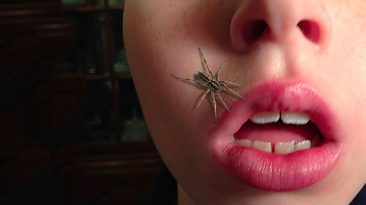Care to take a tour inside your own body? No, I don’t suggest you do capsule endoscopy, you know, the one that takes pictures inside your digestive tract. Or an x-ray. Let’s take the most sophisticated, hypothetical tour, where you would be your own guide.
What I have in mind might seem a bit out-there, but picture this. What if all your organs were mini yous, running their own departments and dealing with each other’s characters?
How would they cooperate?
Your body is a complex machine made up of nearly 100 trillion cells. They’re constantly replicating, dying, and being replaced with new ones. You have five vital organs that you can’t live without, and a few organs that you don’t really need. And now you get a chance to meet them all.
This is the head of the circulatory department, and the hardest-working of all your organs. Your heart is a muscular organ that pumps blood throughout your body all day and all night. It delivers oxygen- and nutrient-rich blood to all parts of your body via arteries, and receives oxygen- and nutrient-poor blood back via veins.
Your heart slows down when you sleep. But when it gets signals of danger, it starts pumping blood faster, to deliver more oxygen to your cells and tissues.
But it doesn’t work alone. It receives deliveries of oxygen from your lungs, the head of the respiratory department. Oxygen in, carbon dioxide out. Move it! I don’t need any of this waste in the system. Wait, do you hear this?
That is your digestive system, two floors down, and it’s breaking down your lunch. But before we get there, you’ve got to meet someone upstairs. Your mouth is like an intern working for a few departments simultaneously. It can cover for your nose and take in oxygen for the respiratory department. And it also begins the process of digestion for the digestive department.
Then the food travels down through your esophagus, all the way to the stomach. Your stomach produces gastric juice that breaks down proteins, and kills off potentially dangerous bacteria. What used to look like a yummy slice of pizza, turns into this paste, and is released into your small intestine.
This 6-meter-long (20 ft) organ absorbs all the nutrients from your lunch, and sends them through your bloodstream and into the liver.
Your liver is a true neat freak. It breaks down drugs, detoxifies all the harmful chemicals, and sends them out of your body as waste. And it hates it when you get drunk. And these are the kidneys. Just like the liver, these guys are a couple of little neat freaks. They clean the waste and excess fluid from your blood, and send all that stuff out of your body as urine.
All these processes are controlled from the command center, your brain. It has about 100 billion employees, the nerve cells. And with their help, the brain sends and receives messages from all the other departments of your body. Yep, your brain’s got some control issues. Everything has to be as it says.
Then you’ve got some workers that aren’t that essential. Take the spleen. Hiding at the back of the ribs, and on the left side of the abdomen, it essentially has the same function as the liver.
And here’s another one, the appendix. It sits at the junction of the large and small bowels, waiting to catch an inflammation from the intestine. That’s when you get appendicitis, and need to remove the sneaky organ from your body.
But most of the workers inside your body are essential. They all come with their set of responsibilities, and if they fail, it’s not good for the entire system. The defense department, your immune system, looks into all the cells that enter your system. It’s always ready to attack bacteria, viruses, and parasites.
But sometimes it’s not enough, and your body needs external help in the form of medication. Jokes aside, if you could take a look inside your body any time you wanted, you’d be able to detect if anything is wrong with it and live longer.
Subscribe to What-If on YouTube or follow the show on Facebook Watch.
Sources
- “Human Body” National Geographic. youtube.com
- “20 amazing facts about the human body”. 2013. The Guardian.
- “The Human Body: Anatomy, Facts & Functions”. Writer, Rachael. 2016. livescience.com.
- “Seven body organs you can live without”. 2017. The Conversation.
- ” Capsule Endoscopy – Mayo Clinic”. 2020. mayoclinic.org.
- “X-Rays, CT Scans And Mris – Orthoinfo – AAOS”. 2020. orthoinfo.aaos.org.
- “Why Does My Heart Beat Faster Sometimes?”. 2018. mentalfloss.com.


















